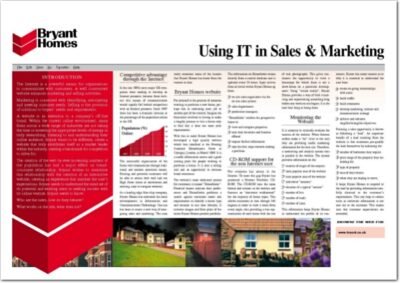A lifestyle business is fundamentally designed to support the owner’s desired way of living rather than to maximise profits or scale to a large enterprise. This type of business prioritises personal fulfilment, work-life balance, and the ability to pursue passions while generating sufficient income to sustain a comfortable lifestyle. Unlike traditional businesses that often focus on aggressive growth strategies and shareholder returns, lifestyle businesses are typically smaller in scale and more aligned with the personal values and interests of their founders.
The concept of a lifestyle business has gained traction in recent years, particularly with the rise of digital technology and remote work. Entrepreneurs can now leverage online platforms to create businesses that fit seamlessly into their lives, allowing them to work from anywhere in the world. This flexibility is a significant draw for many individuals seeking to escape the constraints of conventional employment.
By prioritising personal satisfaction over financial gain, lifestyle businesses can offer a unique blend of professional and personal fulfilment.
Summary
- A lifestyle business is one that is designed to support and sustain a particular lifestyle for the owner, rather than maximising profits or growth.
- Characteristics of a lifestyle business include flexibility, work-life balance, and the ability to pursue personal passions and interests.
- Advantages of running a lifestyle business include the ability to create a flexible schedule, pursue personal interests, and maintain a better work-life balance.
- Challenges of running a lifestyle business may include limited growth potential, financial instability, and the need for self-discipline and motivation.
- Examples of successful lifestyle businesses include freelance writing, photography, and online coaching or consulting services.
Characteristics of a Lifestyle Business
One of the defining characteristics of a lifestyle business is its focus on sustainability rather than rapid growth. Entrepreneurs in this space often aim for steady, manageable income that allows them to maintain their desired lifestyle without the pressures associated with scaling operations. This approach often leads to a more relaxed pace of work, where the emphasis is placed on quality over quantity.
The business model is typically designed around the owner’s skills and interests, ensuring that they remain engaged and passionate about their work. Another notable characteristic is the level of autonomy that comes with running a lifestyle business. Owners have the freedom to make decisions that align with their values and vision, rather than being beholden to investors or corporate stakeholders.
This independence fosters creativity and innovation, as entrepreneurs can experiment with new ideas without the fear of jeopardising their financial stability. Additionally, many lifestyle businesses are built around niche markets, allowing owners to cater to specific audiences and create tailored products or services that resonate deeply with their customers.
Advantages of Running a Lifestyle Business
One of the most significant advantages of running a lifestyle business is the enhanced work-life balance it can provide. Entrepreneurs have the flexibility to set their own schedules, allowing them to allocate time for personal pursuits, family commitments, and leisure activities. This balance can lead to improved mental health and overall well-being, as individuals are not confined to the rigid structures often found in traditional employment settings.
The ability to work from various locations also opens up opportunities for travel and exploration, enriching both personal and professional experiences. Financial independence is another compelling benefit associated with lifestyle businesses. While these ventures may not generate the same level of income as large corporations, they often provide enough revenue to support a comfortable lifestyle without the stress of corporate hierarchies or demanding bosses.
This financial freedom allows entrepreneurs to make choices based on passion rather than necessity, enabling them to pursue projects that genuinely excite them. Furthermore, many lifestyle businesses have low overhead costs, which can lead to higher profit margins and greater financial security.
Challenges of Running a Lifestyle Business
Despite the numerous advantages, running a lifestyle business is not without its challenges. One significant hurdle is the potential for income instability. Unlike traditional jobs that offer a steady paycheck, lifestyle businesses often experience fluctuations in revenue due to market demand or seasonal trends.
This unpredictability can create financial stress for entrepreneurs who rely solely on their business income. As such, effective financial planning and budgeting become crucial for maintaining stability during lean periods. Another challenge lies in the blurred boundaries between work and personal life.
While the flexibility of a lifestyle business can be liberating, it can also lead to difficulties in separating professional responsibilities from personal time. Entrepreneurs may find themselves working longer hours or struggling to disconnect from their business, which can ultimately lead to burnout. Establishing clear boundaries and routines is essential for maintaining a healthy balance and ensuring that personal well-being does not suffer as a result of entrepreneurial pursuits.
Examples of Successful Lifestyle Businesses
Numerous successful lifestyle businesses exemplify how entrepreneurs can create fulfilling ventures while maintaining a balanced life. One notable example is Tim Ferriss, author of “The 4-Hour Workweek,” who has built a brand around optimising productivity and lifestyle design. Ferriss has leveraged his expertise in entrepreneurship and self-improvement to create various online courses, podcasts, and books that resonate with individuals seeking greater freedom in their lives.
Another inspiring case is that of Pat Flynn, who founded Smart Passive Income after being laid off from his job in architecture. Flynn’s journey into entrepreneurship began with creating an online study guide for an exam he had passed, which eventually evolved into a comprehensive platform offering resources for aspiring entrepreneurs. His success has allowed him to travel extensively while sharing valuable insights on building passive income streams through blogging, podcasting, and online courses.
How to Start a Lifestyle Business
Starting a lifestyle business begins with identifying one’s passions and skills. Entrepreneurs should take time to reflect on what they genuinely enjoy doing and how those interests can be transformed into a viable business model. Conducting market research is essential at this stage; understanding potential customers’ needs and preferences will help shape the direction of the business.
This research can involve surveys, interviews, or simply engaging with target audiences through social media platforms. Once a viable idea has been established, creating a solid business plan is crucial for outlining goals, strategies, and financial projections. This plan should include details about the target market, marketing strategies, pricing models, and operational logistics.
Additionally, entrepreneurs should consider their branding and online presence; establishing a professional website and utilising social media channels can significantly enhance visibility and attract customers. As the business begins to take shape, it is vital to remain adaptable and open to feedback, allowing for adjustments based on real-world experiences.
Tips for Managing a Lifestyle Business
Effective management is key to ensuring the success of a lifestyle business while maintaining personal well-being. One essential tip is to establish clear boundaries between work and personal life. Setting specific working hours and creating designated workspaces can help entrepreneurs stay focused during work hours while allowing them to fully engage in personal activities outside those times.
Regularly scheduling breaks throughout the day can also prevent burnout and enhance productivity. Another important aspect of managing a lifestyle business is prioritising self-care and mental health. Entrepreneurs should make time for activities that promote relaxation and rejuvenation, whether through exercise, hobbies, or spending time with loved ones.
Additionally, networking with other like-minded individuals can provide valuable support and inspiration; joining entrepreneurial communities or attending workshops can foster connections that lead to collaboration and growth opportunities.
Is a Lifestyle Business Right for You?
Determining whether a lifestyle business aligns with one’s goals requires careful consideration of personal values and aspirations. Individuals who prioritise flexibility, autonomy, and work-life balance may find this type of venture particularly appealing. However, it is essential to assess one’s risk tolerance; those who thrive in structured environments may struggle with the uncertainties inherent in entrepreneurship.
Moreover, aspiring lifestyle entrepreneurs should evaluate their financial situation before embarking on this journey. While many lifestyle businesses can be started with minimal investment, having a financial cushion can alleviate stress during initial stages when income may be inconsistent. Ultimately, understanding one’s motivations and aligning them with the principles of a lifestyle business will be crucial in making an informed decision about whether this path is suitable for them.
If you are interested in learning more about how businesses can adapt to changing consumer behaviours, you may want to read the article on why mobile is the next step in gaming. This case study explores how the gaming industry has evolved to meet the demands of mobile users and provides valuable insights into the future of the sector. Embracing new technologies and trends is essential for businesses looking to stay competitive in today’s fast-paced market.
FAQs
What is a lifestyle business?
A lifestyle business is a business that is set up and run with the aim of sustaining a particular level of income and no more; or to provide a foundation from which to enjoy a particular lifestyle.
What are the characteristics of a lifestyle business?
Characteristics of a lifestyle business include being small in scale, often run by the owner, and designed to provide a work-life balance that suits the owner’s personal goals and values.
What are some examples of lifestyle businesses?
Examples of lifestyle businesses include freelance writing, consulting, online retail, and small-scale food and beverage businesses.
How is a lifestyle business different from a startup or traditional business?
A lifestyle business is typically not focused on rapid growth or scaling, and is often designed to provide a sustainable income while allowing the owner to maintain a desired lifestyle. In contrast, startups and traditional businesses often aim for rapid growth and scaling.
What are the benefits of running a lifestyle business?
Benefits of running a lifestyle business include the ability to maintain a work-life balance, flexibility in working hours, and the opportunity to pursue personal interests and passions while earning a living.
What are the challenges of running a lifestyle business?
Challenges of running a lifestyle business may include limited growth potential, the need for self-discipline and motivation, and the potential for income fluctuations.
 Using a range of management styles to lead a business (PDF)
Using a range of management styles to lead a business (PDF)  CIMA A3 ePoster Edition 15 "Controlling cash flow for business growth"
CIMA A3 ePoster Edition 15 "Controlling cash flow for business growth"  First Direct A3 ePoster Edition 13 "Using market research to relaunch a brand"
First Direct A3 ePoster Edition 13 "Using market research to relaunch a brand"  Using IT in sales and marketing (PDF)
Using IT in sales and marketing (PDF)  First Group A3 ePoster Edition 13 "Managing external influences"
First Group A3 ePoster Edition 13 "Managing external influences" 

